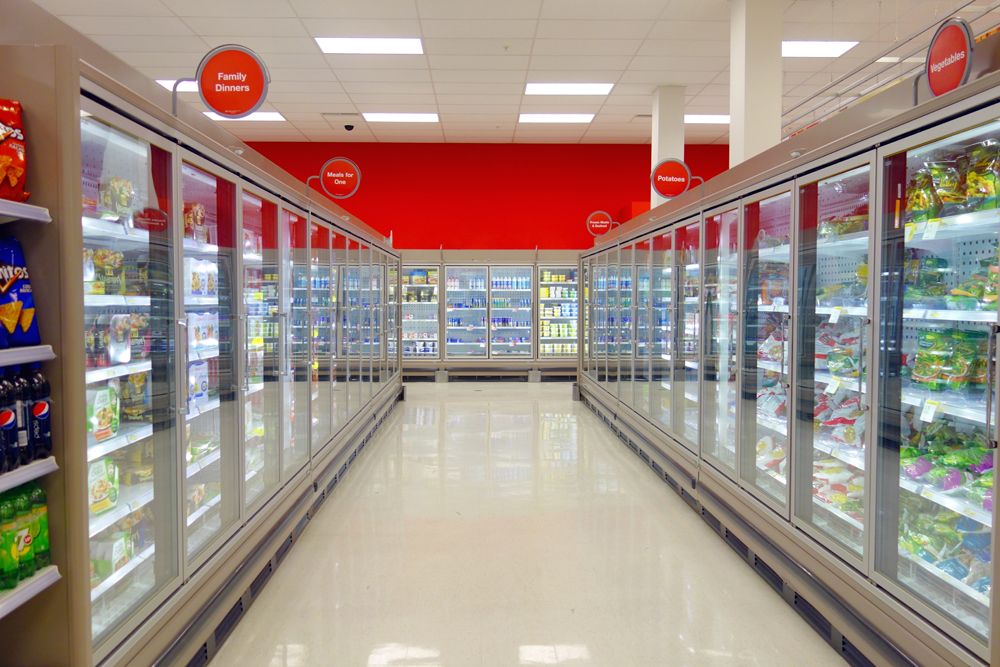Canadian food policy – Let supermarkets keep innovating

Op-ed published exclusively on our website.
Few people ever stop to wonder how the food they eat finds its way to their table every day. Yet the process by which it does is a veritable economic and logistical miracle.
The economist Frederic Bastiat observed almost 200 years ago that the residents of Paris relied on the rest of France for most of their sustenance, and that they nonetheless slept peacefully each night without worrying that they would die of hunger if all of these provisions of all kinds were to cease flowing. The key to this astonishing feat, Bastiat wrote, was the principle of freedom in transactions that each day delivered “what is wanted, nothing more, nothing less, to this gigantic market.”
This is still true today, as shown by the amount of choice that your supermarket offers you daily. The wonders of a free-market in food described by Bastiat have since been extended—albeit imperfectly—to every part of the world. More and more people have access to thousands of products from the four corners of the globe. We have more and more choice, at ever-lower prices.
In spite of this undeniable success, and of the poor track record of government planning throughout history, calls for greater government involvement in the production, regulation, and distribution of foodstuffs are still with us. In Canada, the federal government recently tasked its Department of Agriculture and Agri-Food to develop a food policy for the country, through an extensive process of consultation. The resulting report contains 21 vague recommendations that, for the most part, call for greater government intervention in food markets.
The lure of the local
There is, for example, a call for greater government support “for the growth and development of local and regional agriculture.” Those who promote such a policy fail to understand that it is efficient middlemen and the price signals relayed by producers, processors, and retailers—all private actors—that have historically resulted in the development of regional specializations and of economies of scale at every stage of food production, in addition to providing us with food whose quality is constantly improving.
A return to local food can only deliver higher prices (due to the loss of economies of scale) or less diverse offerings (try to find Canadian oranges in your grocery store). This is not to say, of course, that local production cannot find a niche market among well-off consumers. Still, imposing the consumption of local agriculture would probably reduce the purchasing power of other consumers, and would not help families feed themselves.
Innovation is better than politics
Indeed, many of the objectives of proponents of a national policy, like product traceability and waste reduction, are already being achieved thanks to recent innovations that the free market has encouraged. Why? Because the ones most interested in providing you with quality are those who fight every day to keep you from going to a competitor, and because food that is thrown out eats into a retailers’ profits!
For example, blockchain technology will provide consumers with much more information about the history of a product through the scanning of a QR code. It will also allow for further waste reduction, and for the tracking of contaminated or mislabelled items even more efficiently. Walmart, a logistics champion, recently tested blockchain technology on its mangoes. The company was able to trace them and provide all the information consumers want in two seconds, compared to almost a week right now.
Whatever activists think, our modern food supply chain was built up gradually, through trial and error to be sure, but without any single authority being in charge—and it probably wouldn’t have evolved as much if someone had been in charge. Canada doesn’t need a national food policy; we just need to let the spontaneous innovation that we’ve enjoyed for over a century continue unobstructed every day.
Pierre Desrochers is Associate Researcher at the MEI, Kevin Brookes is a Public Policy Analyst at the MEI. They are the authors of “The Miracle of Supermarkets – The Perspective of the Austrian School of Economics” and the views reflected in this op-ed are their own.

